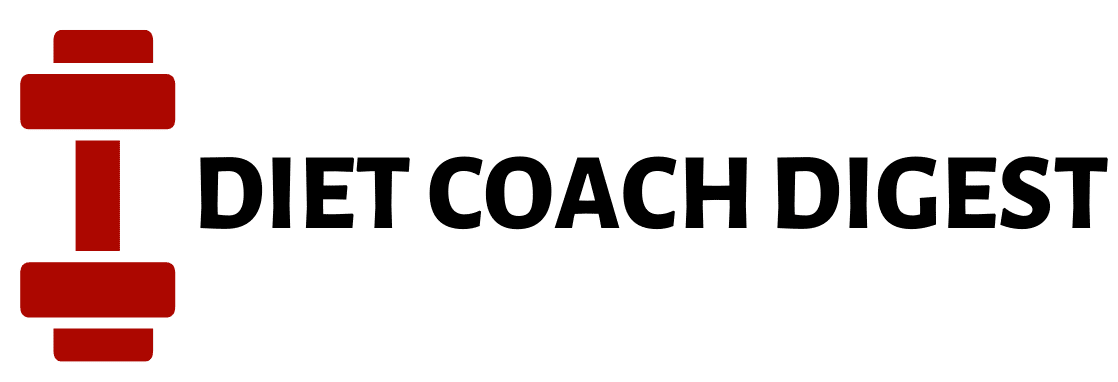The Benefits of Intermittent Fasting For Women

- Should You Train To Muscle Failure Every Set? What You Need To Know - March 4, 2025
- Nutrition in a Hurry: Top Post-Workout Snacks for Active People - February 20, 2025
- 15 Healthy Meal Prep Recipes: Your Weight Loss Made Easy - February 18, 2025
While most people have heard of intermittent fasting for men, few realize how beneficial it can be for women. Many studies have shown significant reductions in “bad” cholesterol, reduced blood pressure, and even decreased insulin resistance in women. All of these results are positive for the health of both men and women. Intermittent fasting, also known as IF, has become a popular method for getting lean and losing weight. It’s also said to boost energy levels, increase motivation and stamina, and improve cognitive function.
How to Start Intermittent Fasting
The first step in starting intermittent fasting is to decide on a timeframe. Most people prefer the alternate-day method because it is more comfortable. In either case, you should have your doctor’s approval and discuss the benefits and risks with him or her. The second step is to determine the number of meals you’ll eat each day. In the beginning, you should plan on eating for 6 to 8 hours at a time.
The second step is to determine the number of calories you want to consume per day. The best way to achieve this is to set a strict time frame for each day. For instance, skip breakfast in the morning. Alternatively, you should only eat within eight hours. However, if you eat every three to four hours, you should do so in moderation. This will prevent hunger, which is a major drawback of intermittent fasting.
The third step is to choose a time for fasting. The most popular method is the 16/8 method. This involves eating every two to four hours. Many people find this schedule easier to maintain. It is important to follow the fasting schedule closely. If you feel hungry, you should drink lots of water and keep hydrated with non-caloric fluids. Ultimately, intermittent fasting can help you lose weight by improving your health and decreasing your cravings. Learn more about how to structure your meals by exploring our guide on Meal Prepping for Busy Women.
The Pros & Cons of Intermittent Fasting For Women
Pros
Some of the benefits of intermittent fasting may include:
- Sustainable weight loss
- An increase in lean muscle mass
- More energy
- An increase in cell stress response
- A reduction in oxidative stress and inflammation
- Improvement around insulin sensitivity in overweight women
- Increased production of neurotrophic growth factor
Now, here’s the tricky part. Although intermittent fasting may have its advantages, women are normally sensitive to signs of starvation, so intermittent fasting for women is a whole different beast.
When the female body detects it’s headed in the direction of starvation, it will raise the production of the hunger hormonal agents, ghrelin as well as leptin, which signal the body that you’re starving. Additionally, if there’s not enough food for you to consume, your body is going to shut down the system that would enable you to produce another human. This is the body’s natural way of safeguarding a potential pregnancy, even if you’re not actually pregnant or attempting to conceive.
It’s not that you’re intentionally enforcing starvation upon yourself– yet your body doesn’t understand that. It doesn’t know the difference between real hunger and intermittent fasting, which is why it defaults to this protective mechanism.
Cons
Some of the cons due to hormonal imbalances brought on by intermittent fasting may also lead to the following:
- Irregular menstrual cycle
- Metabolic stress
- Shrinking of the ovaries
- Anxiety
- Fertility issues
- Difficulty sleeping
Considering that all of your hormones are so deeply interconnected when one hormone is thrown off balance, the rest are also adversely impacted. It resembles a domino effect. As the “carriers” that regulate virtually every function in your body from energy manufacturing to food digestion, metabolic rate, and also blood pressure; you do not want to interrupt their natural rhythm. If you’re concerned about hormone balance while fasting, read our article on the Connection Between Zinc and Thyroid Health.
You might be asking yourself: should you (and would you still want to) practice intermittent fasting as a female? If you take a much more relaxed approach, the answer is yes. When done within a briefer timeframe, intermittent fasting might still aid you in reaching your fat-burning goals as well as supply the various other benefits previously discussed, without ruining your hormonal chemistry.
Best Intermittent Fasting Methods for Women

So, what exactly is a relaxed technique for intermittent fasting? Again, since there’s little research done on intermittent fasting, we’re dealing with a little bit of a gray area. The opinions also tend to vary depending upon which website you go to, or which health professional you ask. From what we have actually discovered, the general guidelines for quick intermittent fasting for ladies are:
- Drink plenty of fluids during your fast, such as water and herbal teas.
- Do not fast on consecutive days during your first two to three weeks of fasting.
- Do not fast for longer than 24 hours.
- Ideally fast for 12 to 16 hours.
- Be sure to do only light exercise on fasting days, such as yoga, walking, jogging, and stretching.
Best Options for Intermittent Fasting (IR)
Here is a list of a few of the most popular methods.
16/8 Method
This method sometimes called the “lean gains method,” is another brief intermittent fasting routine that’s used specifically to target body fat and improve lean muscle mass.
Fasting Window: 16 hours
Eating Window: 8 hours
Safe for Women: Yes
Crescendo Method
The Crescendo Method is one of the best ways to ease into intermittent fasting without shocking your body or throwing your hormones out of balance. It doesn’t require you to fast every day, only a few days per week, spaced throughout the week. For example, Monday, Wednesday, and Friday.
Fasting Window: 12-16 hours
Eating Window: 8-12 hours
Safe for Women: Yes
24 Hour Protocol
The 24-hour protocol also referred to as “eat-stop-eat” requires you to do a 24-hour fast, once or twice per week. You can choose the time you start fasting. Some people prefer to fast from 8 pm to 8 pm the following day or begin their fast right after breakfast.
Fasting Window: 24 hours
Eating Window: 0
Safe for Women: Yes, when done a maximum of 2 times per week.
When Should I Avoid Intermittent Fasting?
Underweight individuals, struggling with weight gain, under 18 years of age, pregnant, or breastfeeding should not attempt an intermittent fasting diet, as they need sufficient calories daily for proper development.
Insulin-dependent diabetics could put themselves at serious risk by following an intermittent fasting schedule. People who struggle with Type 1 or insulin-dependent diabetes are not prime candidates for this diet regime.
Keep in mind that intermittent fasting may have different effects on different people. Talk to your doctor if you start experiencing unusual anxiety, headaches, nausea, or other symptoms after you start intermittent fasting.
Are There Healthy Alternatives To Intermittent Fasting?
Clearly, intermittent fasting isn’t for everyone. Is there a way to reap all the benefits of intermittent fasting (like weight loss, increased energy, optimal fat burning, and better concentration) without putting yourself at risk?
The answer is most definitely yes! With a commitment to a healthy, well-balanced lifestyle of proper nutrition and a consistent exercise routine.
Frequently Asked Questions About Intermittent Fasting (IR) For Women
Can I Exercise When Intermittent Fasting?
Of Course. Some will choose to exercise on non-fasting days if they are doing the Alternate Days Method. Others will work out during a fast because of the benefits of building lean muscle mass. Ideally, the best time to exercise is according to how you feel and what you are used to.
Does Intermittent Fasting Increase Your Appetite?
You may feel like you are starving when you get to your eating window, but as long as you eat healthy food and keep your calories around 1200-1800 per day depending on your body type, you will soon get used to eating less. An excellent way to make sure that you eat what you should when you have an eating window is to meal prep. Spend an afternoon and prepare your meals ahead of time. Everything you need to eat clean will be ready and waiting in the fridge.
What Foods Can I Eat During Intermittent Fasting?
Eat high-fiber foods, beans, fruits and vegetables, and high-protein foods, including meat, fish, tofu, or nuts, during your eating window. Drink plenty of water.
What Should I Eat For Breakfast On Intermittent Fasting?
A good combination of carbohydrates and protein such as quinoa or oats with lots of nuts, seeds, and Greek yogurt is great for this. Eating complex carbs and nuts together provides both instant and long-lasting energy, while the protein helps to build muscle. The best meals are always clean-eating food.
Conclusion On IR For Women
Intermittent fasting is great for some people, but not others. The only way to find out which group you belong to is to give it a try. But if it becomes too uncomfortable then a more traditional diet plan may be right for you.
If you feel good when fasting and find it to be a sustainable way of eating, it can be a very powerful tool to lose weight and improve your health.
In reality, there is no one-size-fits-all solution when it comes to nutrition. The best diet for you is the one you can stick to in the long run.
For a more scientific detailed analysis of intermittent fasting please visit: Effect of Alternate-Day Fasting on Weight Loss, Weight Maintenance, and Cardioprotection Among Metabolically Healthy Obese Adults: A Randomized Clinical Trial
Table of Contents






